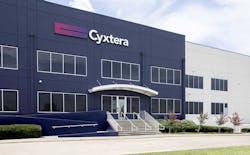On-Demand Connectivity: Colocation’s Secret Weapon
In this edition of Voices of the Industry, Randy Rowland, President of Data Center Services at Cyxtera, explores how choosing colocation operators that provide on-demand connectivity and data center services can help you advance your hybrid IT transformation.
Randy Rowland, President of Data Center Services at Cyxtera
The data center hasn’t changed much in the last twenty years, yet network bandwidth, servers, software and the pace of work has changed dramatically. The shift to more hybrid IT strategies has not only increased the resource demands on the data center; it’s made the ability to design, deploy, and scale the network fabric that links infrastructure, applications, and users more important than ever.
The Capacity Planning Balancing Act
Assuring adequate connectivity and bandwidth for initial needs and future growth is often the first hurdle for data center colocation customers. The uncertainty of future IT needs makes it hard to predict data center connectivity and capacity requirements; so customers often hedge their bets. They either over provision connections and infrastructure, paying for underutilized bandwidth and resources; or under-provision and scramble to expand when needed. An enterprise can suffer financially if it’s unable to optimize connectivity with its carriers, ISPs, dark fiber providers, cloud platforms, and other service providers. As such, finding a data center provider with a robust ecosystem of providers becomes another key factor in building a successful hybrid IT environment.
Network Provisioning at Cloud Speed
Dedicated IT infrastructure, and the network connectivity that links it to users, must be more dynamic and responsive to the needs of the enterprise. Unfortunately, planning, procuring, and deploying new connectivity and incremental bandwidth can take weeks. Data center networks need to become more cloud-like so enterprises can procure, configure, and provision connections in minutes and hours rather than days and weeks. This provides the speed and agility a modern enterprise requires to remain competitive.
The combination of a software-defined network fabric with software powered procurement, configuration, and deployment functionality makes on-demand data center networking possible. It replaces the patch cords and cable crimpers with APIs and a web console that enable administrators, IT management tools, and even applications themselves, to programmatically configure network connectivity and bandwidth through software.
No longer just space, power, and cooling, the colocation data center must serve as the interconnection point between data centers, business partners, network providers, and leading cloud platforms. With on-demand connectivity, as well as on-demand compute, colocation can be play a much more strategic role as an interconnectivity hub that allows the IT team to respond quickly to changing needs.
Further, with colocation as an interconnectivity hub, enterprises benefit from a marketplace of service providers partners and customers that they can quickly connect with and easily stand up new services. Data center colocation has helped reduce network cost versus in-house data center for years by avoiding local loop charges and increased competition from multiple network providers vying for business. An on-demand model furthers those advantages with faster time to market for new and expanded workloads. It also saves additional costs by avoiding over provisioning and scaling connectivity and bandwidth as needed.
No longer just space, power, and cooling, the colocation data center must serve as the interconnection point between data centers, business partners, network providers, and leading cloud platforms.
Dedicated compute, storage, and connectivity are critical for many workloads. It is time for the colocation data center to move at the speed of cloud. Look for operators that provide on-demand data center services to help advance your hybrid IT transformation.
Randy Rowland is President, Data Center Services, Cyxtera. Rowland leads Cyxtera’s data center services business, responsible for all aspects including strategy, engineering, operations, product development, product management and evangelism. Connect with Randy on LinkedIn.


